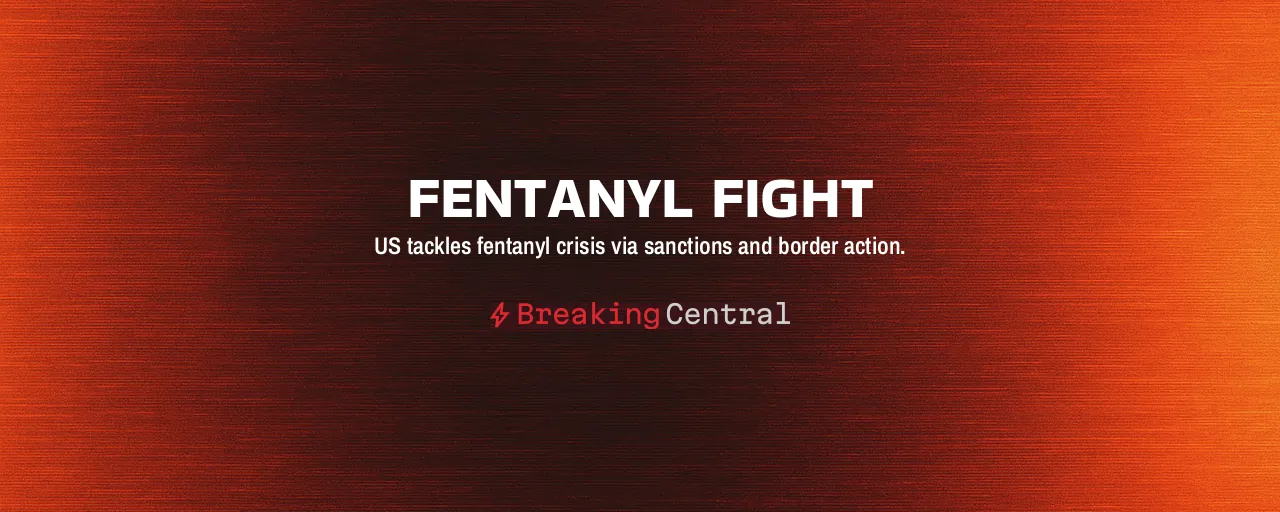A Crisis That Demands Action
Fentanyl has carved a path of destruction across America, killing over 100,000 people in 2024 alone. Families mourn, hospitals strain under the weight of overdoses, and small towns grapple with addiction's fallout. The Sinaloa Cartel, driven by its brutal Los Chapitos faction, fuels this tragedy by flooding the U.S. with illicit fentanyl. On June 9, 2025, the U.S. Treasury Department took a decisive stand, sanctioning Los Chapitos and its fugitive leaders, Archivaldo Ivan Guzman Salazar and Jesus Alfredo Guzman Salazar, sons of the infamous Joaquin 'El Chapo' Guzman. This move marks a turning point in the battle to reclaim our communities.
For years, cartels have exploited lax border enforcement, smuggling drugs with devastating ease. The Treasury's sanctions, combined with the State Department's $10 million bounty for the Guzman brothers' arrest, deliver a powerful message: the United States will confront those who profit from our pain. By targeting their assets and dismantling their money-laundering operations in Mazatlan, the government is striking at the cartel's core.
Why should this matter to every American? Fentanyl is a poison, hidden in fake pills that claim young lives. The CDC notes that 72 percent of overdose deaths involve fentanyl, with rural areas hit three times harder than the national average. This is a national emergency. The Treasury's actions are a vital step toward stopping the carnage.
The stakes are personal. Every parent fears their child could be next, every community feels the ripple effects of addiction. The time for half-measures is over. The U.S. acts with unrelenting focus to protect its people from this deadly threat.
The Violent Reign of Los Chapitos
Los Chapitos, under the command of El Chapo's sons, have turned Sinaloa into a war zone. Since September 2024, their turf battles have left over 600 dead in Mexico, with their violence crossing into the U.S., including the murder of former Marine Nicholas Quets in Sonora. Their actions, including torture, kidnapping, and mass killings, mirror those of terrorist groups. These individuals are more than mere criminals. The Treasury's sanctions, enacted under Executive Orders 14059 and 13224, recognize this reality and aim to dismantle their empire.
Their fentanyl operation is vast and calculated. Hidden laboratories in Sinaloa produce the drug using precursor chemicals sourced from China and India, while their Mazatlan network, led by Victor Manuel Barraza Pablos and Jose Raul Nunez Rios, funnels profits through businesses posing as legitimate real estate and hospitality ventures. The DEA's raids on 14 clandestine labs, seizing 2,000 kilograms of fentanyl, reveal the scale of their threat and the need for aggressive action.
Advocates for cartel understanding call for it, suggesting cartels thrive due to poverty or U.S. drug demand. This perspective falls short. Poverty does not excuse terrorism, and demand does not justify poisoning communities. The Sinaloa Cartel launders $300 billion annually, often through Chinese underground networks, because global enforcement lags, not because of American users. Blaming victims instead of perpetrators only strengthens the cartels' hand.
Sanctions as a Weapon, But Not the Whole Arsenal
The Treasury's sanctions are a critical blow. They freeze Los Chapitos' assets and pressure foreign banks that enable their crimes. Since the Kingpin Act, over 800 cartel-linked entities have lost access to global markets, with a 40 percent reduction in illicit petrochemical trades tied to sanctioned Iranian partners. These numbers prove sanctions can disrupt criminal networks. Cartels, however, pivot to cryptocurrencies and unregulated markets, showing that financial penalties alone will not end the fight.
The Trump administration's comprehensive approach, labeling cartels as Foreign Terrorist Organizations, investing $68.8 billion in border security, and mobilizing the National Guard, builds on this foundation. Joint operations with Mexico's National Guard have detained 3,000 cartel members in the past year, while CBP's Operation Plaza Spike targets key trafficking routes. These efforts demonstrate what resolve can achieve.
Policymakers advocating for public health solutions push for gentler approaches, like syringe exchanges or supervised consumption sites. While these may offer some help, they do not address the source: cartels flooding the border with fentanyl. The Biden administration's $1.5 billion harm-reduction grants and the FEARLESS Act show results in specific areas, yet they do not stop the flow of drugs. The focus must be on eliminating the weapon, not just treating the wound.
The Path to Victory
The sanctions on Los Chapitos signal a new chapter, but the battle against the Sinaloa Cartel demands sustained effort. Rooted in decades of corruption, their network will not collapse overnight. Americans need borders that shield them and communities free from addiction's grip. The Treasury's actions, paired with DEA raids and State Department rewards, lay the groundwork for accountability, a future where cartels face justice, not leniency.
This fight transcends politics; it is about protecting lives. Every fentanyl shipment stopped, every cartel leader brought down, restores hope. The House Homeland Security Committee's border security plan, emphasizing barriers and technology, deserves swift action. Diplomatic pressure on Mexico and China to halt precursor chemicals is equally urgent. Anything less fails the families who have lost everything.
What will it take to win? Determination to see this through. The Treasury's sanctions are a bold challenge to the cartels. Now, the U.S. presses forward, dismantling their networks, fortifying the border, and delivering the security Americans demand.
